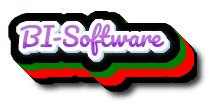In today’s fast-paced business environment, managing customer relationships is crucial for any organization to succeed. Customer Relationship Management (CRM) software has become an essential tool for businesses to manage their interactions with customers, prospects, and partners. In this article, we will delve into the meaning of CRM software, its benefits, and its significance in the Hindi language.

Introduction to CRM Software
Customer Relationship Management (CRM) software is a technology solution that enables businesses to manage and analyze customer interactions and data throughout the customer lifecycle. It provides a centralized platform to store customer data, track interactions, and analyze customer behavior. The primary goal of CRM software is to improve customer relationships, increase customer satisfaction, and drive business growth.
Meaning of CRM Software in Hindi
The term "CRM" is an abbreviation for Customer Relationship Management. In Hindi, it can be translated to "ग्राहक संबंध प्रबंधन" (Grahak Sambandh Prabandhan). This phrase encompasses the idea of managing and nurturing customer relationships to build a loyal customer base.
Benefits of CRM Software
Implementing CRM software can have numerous benefits for businesses, including:
- Improved Customer Service: CRM software provides a single platform to manage customer interactions, enabling businesses to respond quickly and effectively to customer queries.
- Increased Sales: By analyzing customer data and behavior, businesses can identify new sales opportunities and target the right customers with the right offers.
- Enhanced Customer Experience: CRM software helps businesses to understand customer needs and preferences, enabling them to tailor their services to meet customer expectations.
- Streamlined Operations: CRM software automates many manual processes, such as data entry and follow-up emails, freeing up staff to focus on higher-value tasks.
- Data-Driven Decision Making: CRM software provides businesses with valuable insights and analytics, enabling them to make informed decisions and drive business growth.
Features of CRM Software
CRM software typically includes a range of features, such as:
- Contact Management: Storing and managing customer contact information and interaction history.
- Sales Management: Managing sales processes, including lead tracking, opportunity management, and sales forecasting.
- Marketing Automation: Automating marketing campaigns, including email marketing, social media marketing, and lead nurturing.
- Customer Service: Managing customer service processes, including issue tracking, resolution, and escalation.
- Reporting and Analytics: Providing real-time insights and analytics to measure business performance and customer behavior.
Types of CRM Software
There are several types of CRM software, including:
- On-Premise CRM: Installed and managed on a company’s own servers.
- Cloud-Based CRM: Hosted in the cloud and accessible via the internet.
- Open-Source CRM: Free or low-cost software that can be customized and modified.
- Proprietary CRM: Commercial software developed and owned by a specific vendor.
Choosing the Right CRM Software
Selecting the right CRM software depends on various factors, such as:
- Business Size and Complexity: Larger businesses may require more comprehensive CRM software, while smaller businesses may opt for simpler solutions.
- Industry and Requirements: Different industries may require specific features, such as sales management or customer service.
- Budget and Cost: Businesses must consider the cost of the software, implementation, and maintenance.
- Scalability and Flexibility: The software should be able to grow with the business and adapt to changing requirements.
Conclusion
In conclusion, CRM software is a vital tool for businesses to manage and nurture customer relationships. The meaning of CRM software in Hindi, "ग्राहक संबंध प्रबंधन" (Grahak Sambandh Prabandhan), encompasses the idea of managing customer interactions to drive business growth. By understanding the benefits, features, and types of CRM software, businesses can select the right solution to meet their specific needs. Whether it’s improving customer service, increasing sales, or enhancing the customer experience, CRM software has the potential to transform businesses and drive success.
Frequently Asked Questions (FAQs)
- What is CRM software?
CRM software is a technology solution that enables businesses to manage and analyze customer interactions and data throughout the customer lifecycle. - What are the benefits of using CRM software?
The benefits of using CRM software include improved customer service, increased sales, enhanced customer experience, streamlined operations, and data-driven decision making. - What are the key features of CRM software?
The key features of CRM software include contact management, sales management, marketing automation, customer service, and reporting and analytics. - What are the different types of CRM software?
The different types of CRM software include on-premise CRM, cloud-based CRM, open-source CRM, and proprietary CRM. - How do I choose the right CRM software for my business?
To choose the right CRM software, consider factors such as business size and complexity, industry and requirements, budget and cost, scalability and flexibility.
By answering these frequently asked questions, businesses can gain a better understanding of CRM software and make informed decisions when selecting a solution to meet their specific needs.
Closure
Thus, we hope this article has provided valuable insights into Customer Relationship Management (CRM) Software: Understanding its Meaning and Significance. We hope you find this article informative and beneficial. See you in our next article!
